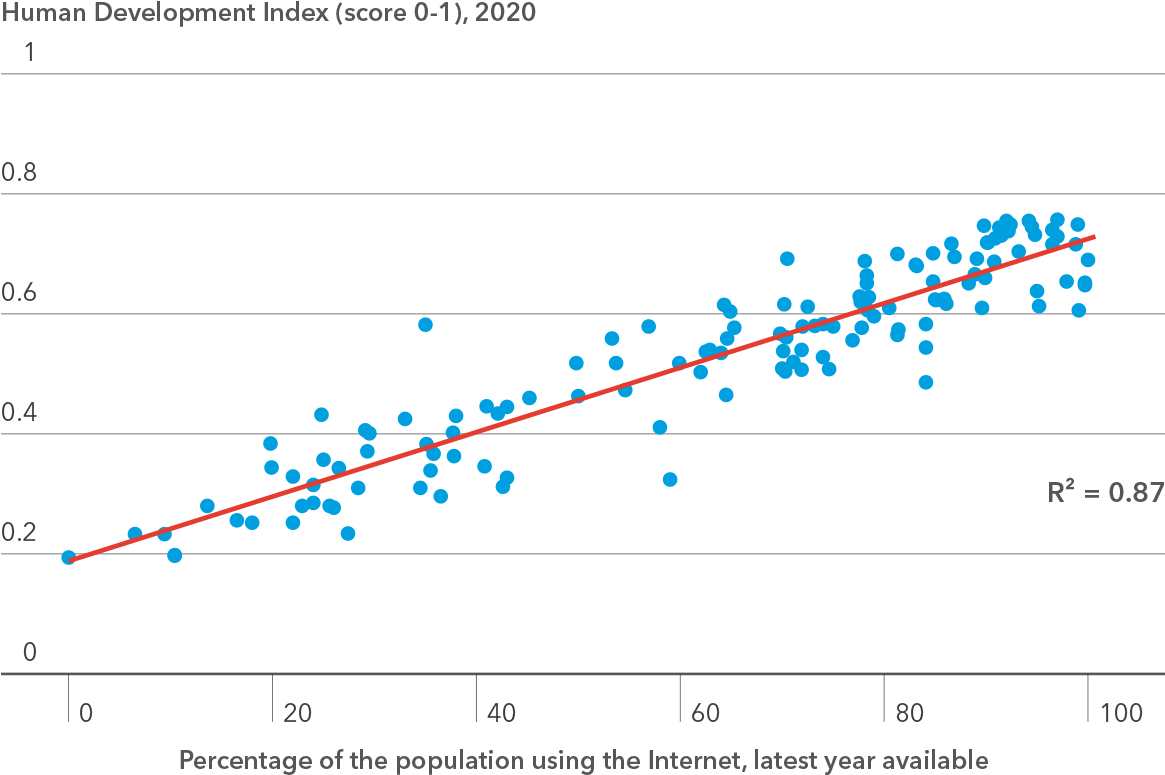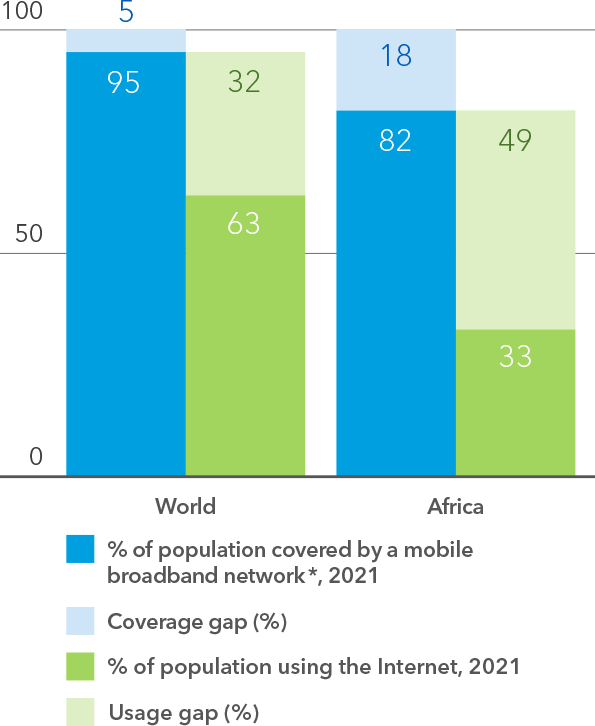In 1984, the Independent Commission for World-Wide Telecommunications Development convened by ITU published The Missing Link – a seminal report that for the first time identified the social and economic benefits of telecommunications and promoted connectivity as a right and a priority for all countries. The report noted that it was “not right” that only a minority of the world benefits from “remarkable new technologies”.
Since the publication of that report, there has been tremendous progress in connecting the world. The Internet – a remarkable technology that did not exist in 1984 – is now woven into the entire fabric of our daily lives. And the minority has become the majority: two-thirds of humanity use the Internet. Yet despite this progress, “the link is still missing”: one- third of the world’s population remains offline and many among the online population are not meaningfully connected. The “missing link” has morphed into multiple digital divides, across and within countries, between men and women, between youth and older persons, between cities and rural areas, between those who enjoy a fibre connection and those who struggle on a spotty 3G connection.
Linking everyone is no longer enough. Universal and meaningful connectivity, the possibility for everyone to enjoy a safe, satisfying, enriching, productive, and affordable online experience, has become the new imperative for the 2020-2030 decade.
Depriving vast swaths of humanity from the possibilities offered by the Internet is unacceptable and costly, as it stunts economic development and deepens inequalities. The COVID-19 pandemic has led to a sharp uptake in usage of the Internet. For those privileged enough to be connected, the Internet allowed a measure of continuity. However, for others, the pandemic exacerbated the cost of digital exclusion.
Connectivity has a profound and far-ranging impact. The catalytic and enabling role of connectivity for sustainable development is recognized in the Sustainable Development Goals. The Internet offers significant economic benefits and the potential to enhance welfare for individuals throughout their lives. It enables new forms of communication, entertainment, expression, and collaboration. It enables access to services where traditional services are lacking, access to an enormous amount of knowledge, learning resources, and job opportunities. The benefits of connectivity are considerable for everyone, including marginalized and vulnerable groups, who are often the least connected.
Connectivity and human development

Sources: ITU and UNDP
In this Decade of Action, three challenges have emerged:
- Closing the coverage gap: Even though 95 per cent of the world population is now within range of a mobile broadband network, at least 390 million people have no possibility to connect to the Internet.
- Closing the usage gap: One in three individuals who could go online choose not to, mainly due to prohibitive costs, lack of access to a device, and/or lack of awareness, skills, or purpose.
- Achieving universal and meaningful connectivity: This means upgrading connectivity from basic to meaningful for all.
Bridging the coverage and usage gaps
Five per cent of the world’s population cannot connect to the Internet. In Africa, the share is 18 per cent. A further 32 per cent of people on the planet (49 per cent in Africa) are within range of a broadband network but are not online, due to lack of affordability, lack of access to a device, and/or lack of awareness, skills, or purpose.

Source: ITU
As the use of the Internet increases, so too does the exposure to the downsides of connectivity such as privacy infringements, cybercrime, harmful content, and the outsized power of large companies. Addressing these issues is part of the journey to universal and meaningful connectivity. Finally, digital connectivity alone cannot solve any of the global challenges the world is facing. It is only one of many enablers of sustainable development. “Analogue complements”, including governance, security, health, education, transport infrastructure, and entrepreneurship are needed.